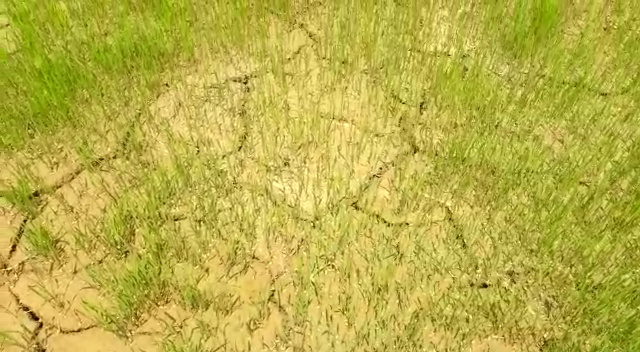Baripada: Usually, heavy rainfall is seen throughout the state during the month of Shravan. Most of the water bodies get filled with rainwater in this month. However, the climatic changes taking place these days have altogether impacted the agricultural activities in the state. As a result, many abnormalities are being found in the crop cultivation cycle.
As the monsoon became weak soon after its arrival, scanty rainfall in the district has added to the woes of farmers.
The saplings of paddy planted by the farmers, after arrival of the monsoon, have now started turning yellow.
According to sources, three-fourth of people of the densely tribal populated district of Mayurbhanj depends upon agriculture. Agriculture is a major contributor to the economy of Mayurbhanj district. However, the farmers had started growing paddy saplings well in advance, since June 15, keeping in mind the forecast on timely arrival of monsoon.
In normal situations of rainfall, they complete planting of paddy saplings between July 15 and August 15.
A local farmer named Madhab Singh said, “The district administration should take stock of the situation at ground zero and provide adequate compensation to farmers. In many places, as the agricultural fields are lying uncultivated, people are leaving cattle to fields for grazing.”
Governmental reports say it was targeted to cultivate kharif paddy in 2,92,500 hectares in the 30 blocks of Mayurbhanj district this year. However, agricultural activities have started only in 81,791 hectares so far. Where there is a need for a minimum rainfall of 337.03 mm by the month of July, the district has recorded a rainfall of only 90.35 mm till date.
Reacting to this, the Deputy Director of Agriculture Damodar Sethy said, “There is a very high possibility of drought condition if the rainfall is not sufficient in the coming days, at least within a week.”
PNN







































